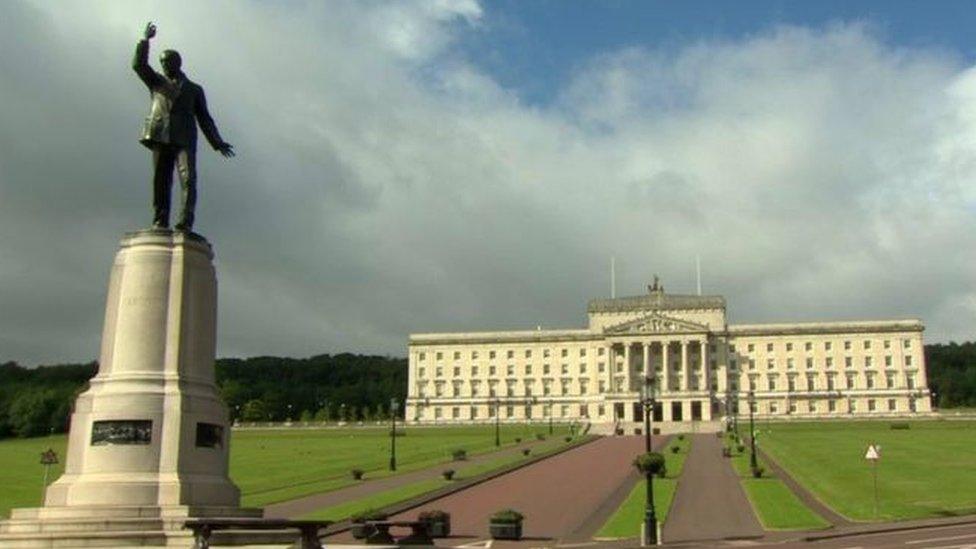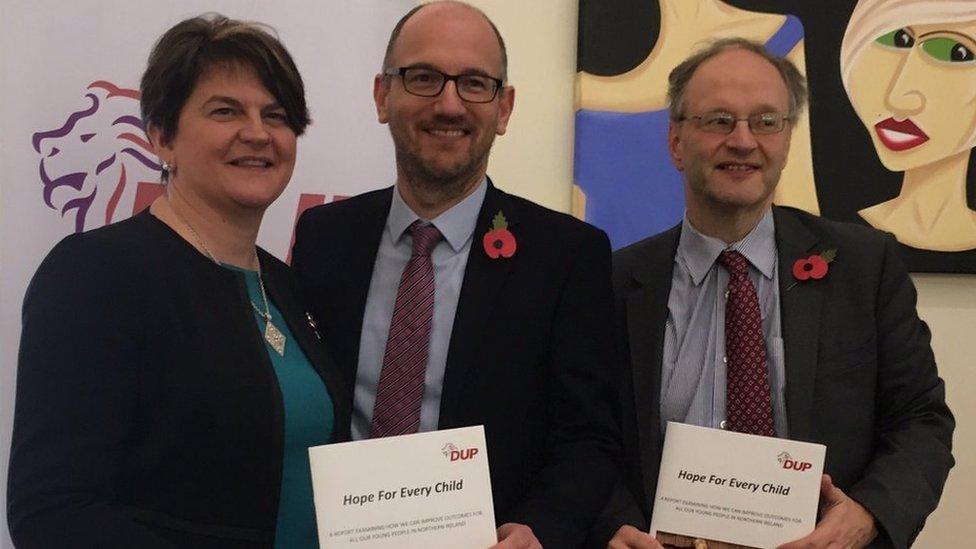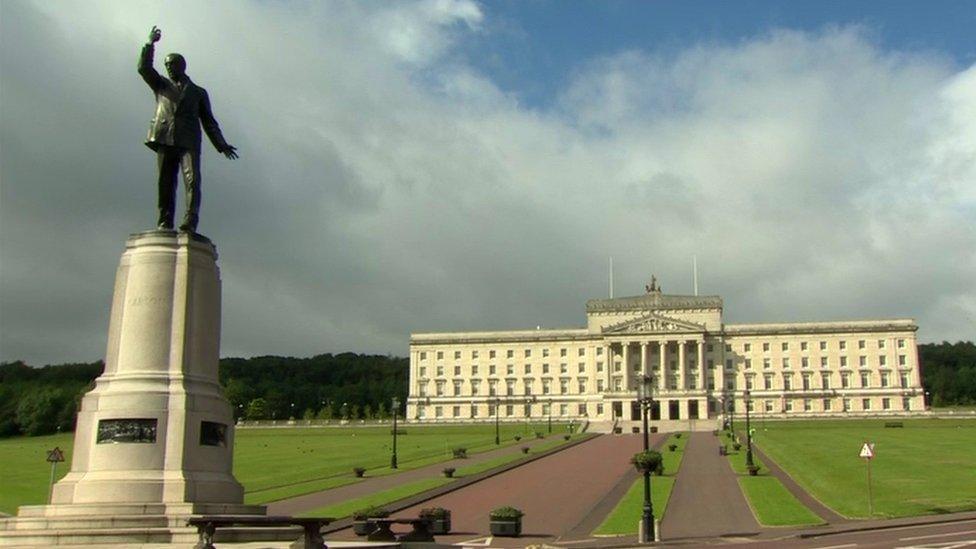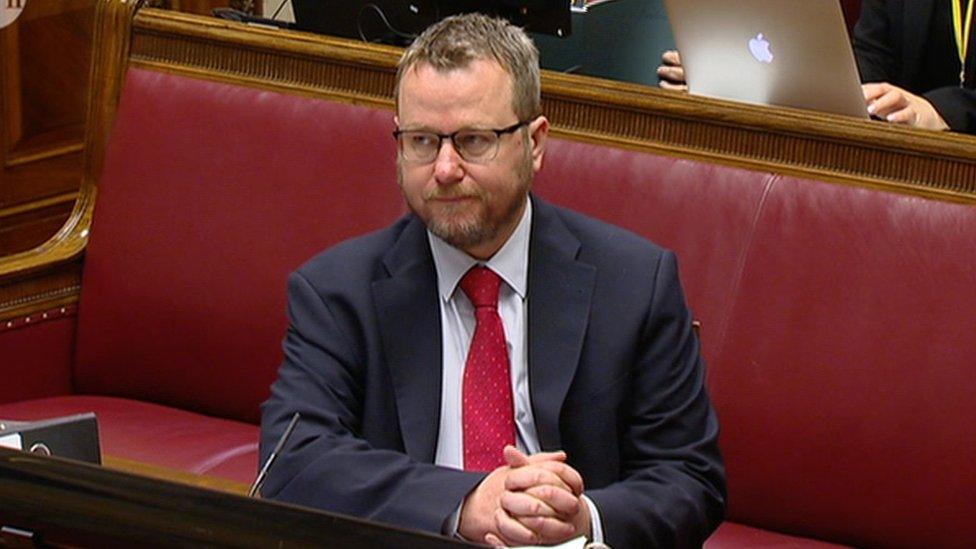Stormont: Names of special advisers and salaries published
- Published

There are a total of 14 Spads, compared to 16 before the suspension of Stormont
The Stormont parties have named the special advisers (Spads) who will work with the new executive ministers.
They include former MLAs and serving councillors.
Compared to the period before the suspension of Stormont, the total number of advisers has been reduced and their average salaries are lower.
There are a total of 14 Spads, compared to 16 before the suspension of Stormont.
The average salary for special advisers at January 2017 was £72,681.
Their average salary now will be about £10,000 lower at £62,750.

Emma Little-Pengelly is one of the new special advisers
The Department of Finance has said the total annual salary pay bill is now £876,498.
The total annual salary pay bill in 2017 was £1,162,894.
Some of the advisers are already well known in politics - they include the DUP's Emma Little-Pengelly in the Executive Office, who until recently was the MP for south Belfast, and Alastair Ross, a former DUP MLA.

Who's among the new Spads?

Peter Martin (centre) with First Minister Arlene Foster and Education Minister Peter Weir
Some of the better-known names on the list include:
Emma Little-Pengelly: Former DUP MLA, appointed as a Spad for the Executive Office on a salary of about £78,000
Alastair Ross: Former DUP MLA, appointed as a Spad for the Department for the Economy on a salary of about £65,000
Dara O'Hagan: Former Sinn Féin MLA, appointed as a Spad in the Executive Office on a salary of about £78.000
Peter Martin: DUP councillor, appointed as a Spad in the Department of Education on a salary of about £60,000
Ronan McGinley: Former Sinn Féin councillor, appointed as a Spad for Department of Communities on a pay band one salary of up to a maximum of £54,999
Kim Ashton: Former DUP councillor, appointed as a Spad to the Executive Office on a pay band one salary of up to a maximum of £54,999

The role of special advisers, or Spads, came under the spotlight during the Renewable Heat Incentive (RHI) inquiry.
It exposed how they exerted huge influence, in some cases effectively running departments.
Now the new advisers will operate under a new code of conduct, aimed at making sure they are under ministerial control.
The salaries reflect the role of the adviser, relevant experience and expertise as well as whether they are working for the first and deputy first minister or on more complex cross-departmental work.
You can read the full list of the special advisers and their salaries, external on the Department of Finance website.
- Published17 January 2020

- Published12 September 2018
